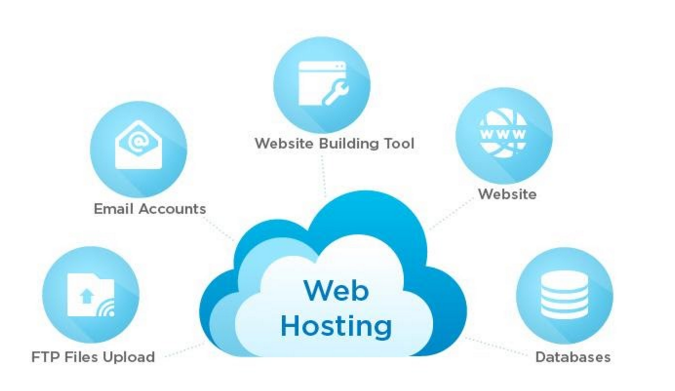Web hosting is part of a larger discussion on web infrastructure. It can be described as your site being hosted on a server somewhere rather than inside your personal computer or business. Hosting companies offer space on their servers to users to upload their content. In some instances, like WordPress and Blogger, you will upload directly from your desktop but most hosting companies require that you sign up to their website. Your content is then accessible via the internet.
Web Hosting Providers
Two segments are a good way for describing web hosting. There are some companies that offer basic hosting services where your website is stored on their servers, however you are the one responsible for the management of it. And there are businesses that manage everything for you. This includes backups and regular backups to ensure that your site isn’t down for ever (like Bluehost). A new type of host known as managed hosts is also on the market. It’s a middle ground between the two. Managed hosts usually provide better support, 24/7 availability, and some form of backup services However, you’ll need to spend more money for this level of service.

Choosing the Right Web Host
There are four aspects to consider when you shop for a host including price, uptime assurance (or promise at least the 99% guarantee) Customer service, and features. Uptime is vital because when your website is down, it’s losing money. Your business could be drastically affected if it goes down even for one hour. Before making a purchase, be sure to check the company’s uptime history. Customer service is likewise crucial because if something goes wrong on your website the issue must be rectified promptly to avoid losing customers and revenues.
These services will be charged monthly or annually. Most web hosting companies require at least three years of service. If you cancel after that it will cost the full amount of the three-year service even though you’ve only had access for a couple of months. You must be aware of the terms of your contract before you make any purchases so that you don’t get stuck with an unwelcome bill at an inopportune time.
What’s uptime?
Uptime is the degree of reliability the service has been for an extended period of time generally for 30 days, but can go up to up to 10 years. If you host your site through them, you have a good possibility (based on their percent of uptime) that your site will be running at least 99% of the time over that time. Uptimes are often guaranteed by hosting providers which means that if they are unable to achieve this, they’ll compensate the amount you lost in revenues due to downtime.
These are the most important questions web hosts are likely to ask you prior to making any final decisions
How much do you want to spend? How many years of customers does your company have? What kinds of documents can I upload to my account and why? What is the location of your visitors geographically? What are your future objectives for your website?
Begin with Price
Hosting providers should provide a variety of packages at different prices. Most often, the lowest priced package is simply a location where you upload files however, higher priced packages offer additional features or services. It is recommended to choose the most basic plan first as in the event that you need one of the other features later, it will be significantly easier to access them through your current account. If you begin with one of their higher priced choices, there might not be anywhere for you to buy these extra services when the time comes.
While looking over these options , be sure to check that they’ve got everything you require in terms of bandwidth (the amount of traffic that can be allowed per month) and drive space (how much space you have to store files) as well as. Numerous providers offer free domain hosting in the first year of service so it’s a great option to think about since you’ll require an area to host your website anyway.
Use the newest technology available. Old technology isn’t ideal for websites or customers. They are only concerned with the amount they can afford. Older servers are generally less reliable, they have more problems with downtime, and are just overall slower than newer options. Every second that your website is down, you’ll lose money.
Request an Uptime Guarantee
A crucial thing to keep in mind when choosing a web host is whether they offer uptime guarantees on their packages (99 percent or more) and what consequences for failure to meet this requirement. While the majority of guarantees will provide you a rebate or credit for downtime, it is essential to ensure that they actually meet their promises.
Ask Them To Walk You Through the Technical Aspects of Your Account
If you’re not completely familiar with hosting terminology like cPanel, FTP, MySQL (or the other items they talk about) Ask the host to explain these terms in plain language. Whatever amount you pay them, a good hosting company will be able to explain the process of your account.
If you want to learn more, click hosting vn
